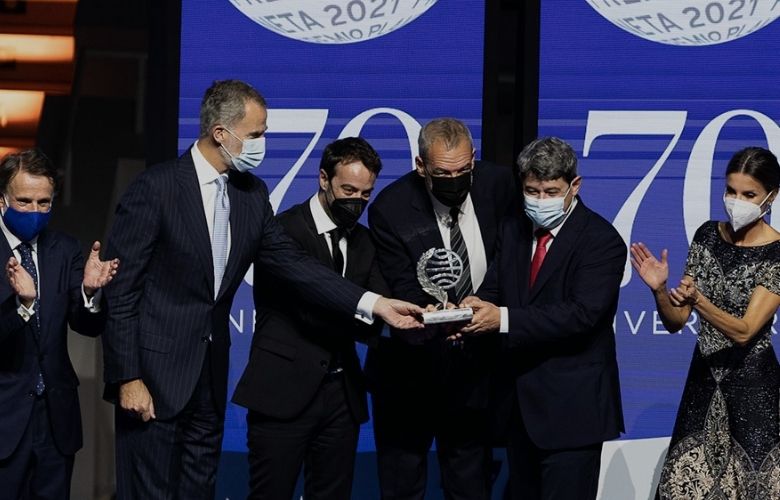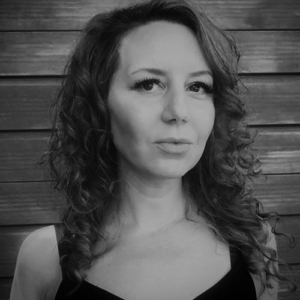
A story stranger than fiction has come to light as acclaimed Spanish author Carmen Mola is revealed to be the pseudonym of three men. Mola’s books in the thriller genre have become extremely popular in the literary world for their controversial and gory content.
The news was revealed as ‘Carmen Mola’ won the prestigious ‘Planeta Literary Award’ that in fact the books’ creators were in fact television writers Agustín Martínez, Jorge Díaz and Antonio Mercero. Receiving the award and the 1 million Euro prize money, the true creators revealed the author’s real identity, leaving many confused, and many more feeling angry and upset. Accepting the prize, Diaz said:
“Carmen Mola is not, like all the lies we’ve been telling, a university professor. We are three friends who one day four years ago decided to combine our talent to tell a story.”
The backlash and strong negative reaction seems to stem from several areas of contention, the most prominent being the fact that the pseudonym also came with a detailed back story about Mola, as well as several published interviews that had previously been conducted by the men in character as Mola. This point raises the question of whether incorporating a pseudonym to retain anonymity has been exploited at the expense of women in this scenario – the character of Mola was detailed as a working university professor, wife and mother who started writing as a hobby, and highlighted the juxtaposition between her wholesome home and work life compared to her violent writing. This marketing tool as well as the fake profile, photographs and interview content created by Martínez, Díaz and Mercero painted quite the picture, leading many to support and become intrigued by the author as well as the books.

More often than not, pseudonyms have been used by women authors through the ages to avoid discrimination and disadvantages that are still apparent in the creative and wider world today. The BBC have recently created a Panorama documentary news programme investigating the rise of online abuse against women. The horrifying data presented for the show demonstrated that women in the public eye are “disproportionately targeted on social media, with abuse frequently rooted in misogyny and combined with racism”. Women often opt for professional anonymity out of very real fears for safety that come with gender discrimination.
The revelation also highlights the efforts of affirmative action initiatives that attempt to provide equal opportunities for women’s work to be taken seriously and appreciated.
Spain’s Women’s Institute had previously included Mola’s books in their ‘feminist reading’ collection that had been established to “help us understand the reality and the experiences of women in different periods of history and contribute to raising awareness about rights and freedoms”.
Perhaps this intention from the WI should be the focus and the key to understanding the situation better; being ignorant and tone deaf to another group’s experience is all too easily done when we ourselves have not lived it or had the conversations with those for whom it is a reality. In all actuality, Martínez, Díaz and Mercero may have perceived their characters of both Carmen Mola and the protagonist Elena Blanco as simply ‘people’ whose stories they were writing – perhaps even championing in a positive light with the best of intentions. The problem is that Carmen Mola has been celebrated for being a woman, and was therefore taking up space in areas created to help level the playing field for women authors.
It is only when we take a step back and appreciate that we still have the need to create opportunities for marginalised groups and communities who face discrimination that we can see the problem isn’t with these three men – it is the fact that we require platforms and areas that provide equity and we are still such a long way from a meritocracy. Perhaps going forward from this curious story will open up more conversations and action on what we can collectively do to make the Arts and literature world a more accessible place for all people and groups who have not been able to tell their stories.
Accessibility At The Smith Center Series: Part One
James “Fitz” FitzSimmons Interview: The Boys In The Band On Netflix


Michelle is a musician and composer from the UK. She has performed across the UK and Europe and is passionate about arts education and opportunities for women and girls.
Read Full Profile© 2021 TheatreArtLife. All rights reserved.

Thank you so much for reading, but you have now reached your free article limit for this month.
Our contributors are currently writing more articles for you to enjoy.
To keep reading, all you have to do is become a subscriber and then you can read unlimited articles anytime.
Your investment will help us continue to ignite connections across the globe in live entertainment and build this community for industry professionals.